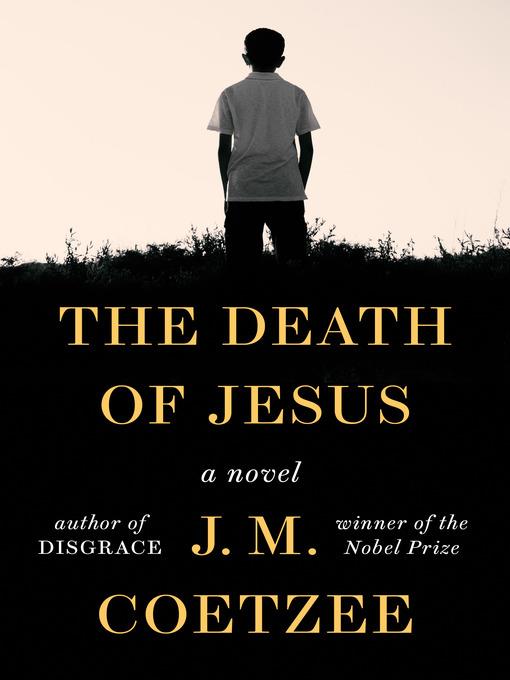
The Death of Jesus
A Novel
کتاب های مرتبط
- اطلاعات
- نقد و بررسی
- دیدگاه کاربران
نقد و بررسی

March 15, 2020
Nobel Prize-winning author Coetzee concludes the biblically tinged trilogy he began with The Childhood of Jesus in 2013. The title gives it all away, though it's not the familiar Jesus who dies. Instead, it's Coetzee's protagonist, David, now 10 years old. Readers of the predecessor volumes will recall that he's a foundling, although his adoptive father and mother, in their roles more or less by accident, aren't quite sure what to do with him. David is a handful, committed to reading only one book, a child's version of Don Quixote. Sim�n, the father, recalls that he borrowed the book from a library in Novilla, a city in an unnamed but presumably Latin American country, and "instead of returning it to the library as a good citizen would have done, David kept it for himself." It becomes the willful boy's lodestone. Meanwhile, he decides that, since he's an orphan, he ought to live in an orphanage--and one just happens to be handy, one whose director is recruiting a soccer team. David is a natural standout at the game, and he becomes the ringleader of a crew of--well, disciples, to whom he imparts a message that none will reveal when he sickens, the victim of a mysterious ailment, and dies. Figures from those predecessor volumes turn up, including Sim�n's b�te noire, Dmitri, who knows David's thoughts as well as anyone; another character named Alyosha provides a second allusion to The Brothers Karamazov, though most of the characters bear names straight out of the Bible. As for David's mother, In�s, the death of her son is enough to drive her away, "leaving the man alone in a strange city, mourning his losses." Coetzee's tone is flat and matter-of-fact throughout, and the book feels slightly underdone, with several unanswered questions--the most central of them that message, at which we can only guess. For Coetzee completists, though not up to masterworks like Waiting for the Barbarians and Life & Times of Michael K.
COPYRIGHT(2020) Kirkus Reviews, ALL RIGHTS RESERVED.

March 23, 2020
The thoughtful, clear-eyed final installment of Nobel laureate Coetzee’s Jesus trilogy picks up three years after The Schooldays of Jesus. David, now age 10, remains an enigmatic prodigy, skilled at soccer, dance, and arcane mathematics, and living under the watchful eye of his ruminative adopted father, Simon—who again narrates—and Ines, his protective adoptive mother. The family, living in a Spanish-speaking town called Estrella in an unnamed country, is disrupted when Dr. Julio Fabricante, the director of a local orphanage, challenges David and his friends to play soccer against the orphans’ team. Almost immediately, David is enchanted by the orphans, and runs away to live with them. After David comes down with a mysterious neurological disorder that makes him prone to sudden falls, he returns home to Simon and Ines. Simon notices changes in David; he is aloof with Simon and Ines and unsettled by questions about the afterlife. David has also attracted a band of followers who treat him with messianic devotion as he recites stories from Don Quixote. Like in previous volumes, Coetzee’s simple, clean prose is guided by philosophical questions, and Simon’s humanistic reflections provide a thrilling contrast to David’s bumpy journey of faith and acceptance of his mortality. This is an ambitious and satisfying conclusion.

Starred review from March 15, 2020
The conclusion of Coetzee's Jesus trilogy (The Schooldays of Jesus, 2017; The Childhood of Jesus, 2013) is no less intellectually confounding than the first two installments, but its mixture of allegory and philosophical discourse becomes further complicated, and its overall effect is intensified by strong currents of grief. Dav�d, now 10, continues to bedevil his adoptive parents, Sim�n and In�s, with his principled opposition to traditional education and his belief in alternative cosmologies. Also, he wants to live at an orphanage so that he can play on its soccer team. When David falls ill with a rare neurological disease, his guardians' troubles are compounded by medical bureaucracy and their inability to console the child when he asks why he has to be that boy. His death, inevitable, given the book's title, but still wrenching in its quiet finality, yields no answers. And so we readers, like Sim�n and In�s, are left to find meaning in the pieces: overlapping allegories and enigmatic pronouncements, a Dostoyevskian hospital orderly, a battered and beloved copy of Don Quixote, and overwhelming heartache. Coetzee lost his 22-year-old son Nicholas in 1989. Though a veritable house of interpretative mirrors, as many of Coetzee's novels are, this one points readers to a less cerebral, more visceral intimacy with the losses it contemplates.HIGH-DEMAND BACKSTORY: Readers of this acclaimed trilogy-in-progress are waiting for its strongly promoted finale.(Reprinted with permission of Booklist, copyright 2020, American Library Association.)

January 1, 2020
Nobel laureate Coetzee wraps up the trilogy begun with The Childhood of Jesus and The Schooldays of Jesus, about the adventures of wayward immigrant child David. Here, the feisty ten-year-old asks too many questions and does homework as he chooses, but he's excited when invited to form a soccer team with his friends. Then tragedy strikes.
Copyright 2020 Library Journal, LLC Used with permission.

























دیدگاه کاربران